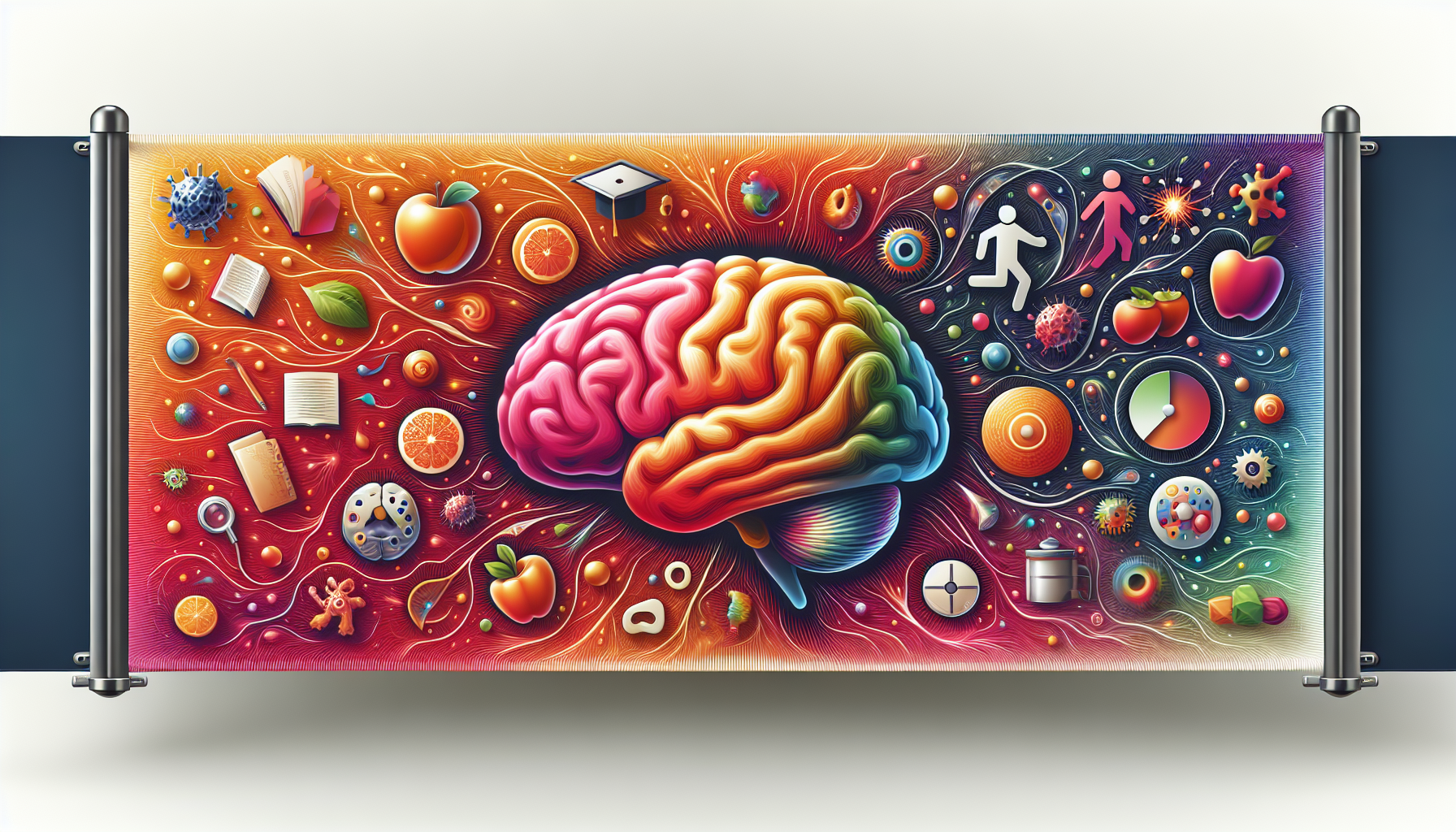On this page
Johann Hari's TED talk shares his personal journey of understanding depression and anxiety beyond the traditional narrative of chemical imbalances, emphasizing the importance of addressing unmet psychological needs, societal factors, and lifestyle elements. He highlights the significance of supportive communities and the need to address loneliness, a prevalent societal issue, in combatting these mental health issues. The speaker also presents alternative approaches to treating depression, such as social prescribing practiced by Dr. Sam Everington, which focuses on connecting individuals and encouraging them to engage in meaningful activities.

How does it apply to you?
Understanding the root causes of depression and anxiety can help us better address these issues in our own lives and our communities. This blog offers insights into non-chemical treatments, such as 'social prescribing', which could be adopted in schools, workplaces, and local communities to enhance mental health.
Applied Learning to Developer Enablement
Understanding Mental Health in the Workplace
The content can be used to raise awareness about mental health issues, such as depression and anxiety, in the software development community. Developers often work in high-stress environments, and understanding the root causes of these mental health issues can help organizations create better support systems. This could include promoting a healthy work-life balance, fostering a supportive community, and addressing issues like job control and loneliness.
Promoting a Supportive Culture
The content emphasizes the importance of community and connection in battling mental health issues. This can be applied in a software development organization by encouraging team collaboration and building a culture where developers feel valued and part of a community. Regular team-building activities, open communication channels, and peer recognition programs can help in achieving this.
Addressing Workplace Stressors
The content discusses how factors such as lack of control in one's job and limited exposure to nature can lead to depression. In a software development context, this can be addressed by giving developers autonomy over their work, flexible work hours, and encouraging regular breaks. Additionally, providing a comfortable work environment with access to natural light and green spaces can also contribute to better mental health.
Adopting Innovative Approaches to Mental Health Support
The concept of 'social prescribing' mentioned in the content can be an innovative approach to support developers facing mental health issues. This could involve creating spaces for developers to engage in activities that foster connections, such as coding clubs, hackathons, or mentoring programs.
Enhancing Learning and Development Programs
Understanding the concept of psychological needs can help in designing effective learning and development programs. These programs can be tailored to meet developers' needs to feel valued and to have a future that makes sense, thereby reducing feelings of anxiety and depression.
Organizational Change
The content highlights the importance of addressing the root causes of mental health issues, which requires a shift in understanding and approach. This can serve as a call to action for software development organizations to prioritize mental health and make necessary changes in their policies and culture.
Developer Checklist
Mental Health Awareness
Work-Life Balance
Community and Social Interaction
Work Values
Summary
Personal Journey and Introduction to Depression
The speaker introduces himself as a 40-year-old who has been observing a rise in depression and anxiety throughout his lifetime in the United States, Britain, and the Western world. He shares his personal experience of battling depression since his teenage years, and his journey with medication, which initially helped but eventually failed to alleviate his pain. He questions why, despite following the prescribed treatment, he still feels the same way.
Investigating the Causes of Depression
Seeking answers to his questions, he embarks on a journey around the world, meeting leading experts on depression and anxiety. He discovers that there are nine different scientifically proven causes of depression and anxiety. While two of these causes are biological, most are related to lifestyle and the way we live. The speaker notes that factors such as loneliness, lack of control in one's job, and limited exposure to nature can lead to depression.
Psychological Needs and Depression
The speaker discusses the concept of psychological needs, such as the need to belong, to feel valued, and to have a future that makes sense. He suggests that our current culture, despite its advancements, fails to meet these deep psychological needs, contributing to the rise in depression and anxiety. He grapples with shifting his understanding of depression from a purely biological problem to one with various causes, including lifestyle.
A Different Perspective on Antidepressants
The speaker shares a story about a South African psychiatrist, Dr. Derek Summerfield, who was in Cambodia when chemical antidepressants were first introduced there. The local doctors, unfamiliar with these drugs, claimed they already had their own antidepressants. This story suggests a different perspective on the treatment of depression, hinting at non-chemical solutions.
The Farmer's Story
The story is about a farmer who worked in rice fields and had lost his leg due to a landmine from a past war. He was given an artificial limb and returned to work. However, working underwater with the artificial limb was painful and traumatic, leading him to develop symptoms of depression. A solution was found by the community, they bought him a cow to become a dairy farmer. This change in his circumstances helped him overcome his depression. The cow was referred to as an 'antidepressant', highlighting the importance of understanding and addressing the root causes of mental health issues.
Depression and Unmet Needs
The narrative moves on to discuss the broader implications of the farmer's story. It challenges the conventional understanding of depression as a chemical imbalance, instead highlighting unmet needs as a significant factor. The World Health Organization's stance is referenced, which emphasizes addressing imbalances in the way people live. The story underscores the importance of collective efforts in understanding and addressing the root causes of depression.
Societal Loneliness
The speaker emphasizes that today's society is the loneliest in human history, with a significant portion of people feeling that they are no longer close to anyone. This loneliness is seen as a significant cause of depression and anxiety. The importance of cooperation and community, which were crucial survival tools for our ancestors, is underscored as a potential solution to this loneliness.
Evolution of Human Social Structure
Humans, similar to bees, evolved to live in communities, forming tribes. In our modern society, we have moved away from this tribal structure, which has caused feelings of isolation and discomfort. This shift isn't permanent and can be remedied by reestablishing communal connections.
Dr. Sam Everington's Approach to Treating Depression
Dr. Sam Everington, a general practitioner in East London, noticed that many of his patients were suffering from depression and anxiety. While he found that chemical antidepressants provided temporary relief for some, they didn't solve the underlying issues. As a result, he decided to pioneer a different approach, focusing on treating loneliness and lack of purpose.
Social Prescribing: A Case Study
A patient named Lisa Cunningham, who had been struggling with severe depression and anxiety, was prescribed a different kind of treatment. She was asked to join a group of people dealing with similar issues to engage in a meaningful activity: gardening. The process of learning and working together helped them form connections and care for each other, leading to significant improvements in their mental health. This approach, known as 'social prescribing', is gaining recognition in Europe.
The Power of Community
In the context of mental health, the importance of 'we' over 'you' is highlighted. The solution to problems of depression and anxiety lies not in individual isolation but in connecting with a group or community. This concept challenges the common advice given to people to 'be themselves', suggesting that being part of a group is more beneficial.
The Impact of Junk Values
Just as junk food has negative effects on physical health, 'junk values' – an overemphasis on money, status, and superficial achievements – can negatively impact mental health. Research by Professor Tim Kasser suggests that the more one believes that happiness can be bought or displayed, the more likely they are to become depressed and anxious. Societal values have shifted more towards these 'junk values' over time, contributing to widespread mental health issues.
Wrong Pursuit of Happiness
The speaker discusses how society has been conditioned to seek happiness in the wrong places, comparing it to consuming junk food instead of nutritious meals. This approach does not fulfill our psychological needs and can lead us away from a fulfilling life.
Realization of Misaligned Values
The speaker shares their personal realization of how they often sought grand external solutions when feeling down, which did not yield positive results. They also discuss the idea that while the importance of love, meaning, and connection in life may seem obvious, it is not often lived by in our culture.
Society's Machine of Neglect
Professor Kasser's theory is introduced, stating that we live in a societal machine designed to make us neglect what's truly important about life. The speaker ponders on this profound thought.
Disrupting the Machine
The speaker discusses Professor Kasser's research on disrupting this machine of neglect. An experiment involving a group of teenagers and adults meeting over a period of time to discuss meaningful moments in their lives is highlighted. The aim was to encourage people to dedicate more time to these meaningful activities and less to superficial pursuits.
Shift in Values
The results of the experiment showed a significant shift in people's values, moving away from depression-generating messages and towards more meaningful and nourishing values. This approach was found to lift people out of depression.
Understanding Depression and Anxiety
The speaker emphasizes the need to change our understanding of depression and anxiety. While acknowledging the biological contributions, they argue that these conditions should not be seen as malfunctions, but as signals indicating something is wrong. They propose that we need to listen to these signals and address the underlying issues.
Closing Remarks
The speaker concludes their speech, expressing gratitude towards the audience. The audience responds with applause, indicating their appreciation for the delivered content.
FAQs
What is the speaker's personal experience with depression? The speaker has battled depression since his teenage years. He tried medication, which initially helped but eventually failed to alleviate his pain. He questions why he still feels depressed, despite following the prescribed treatment.
What are some causes of depression and anxiety? There are nine different scientifically proven causes of depression and anxiety. While two of these causes are biological, most are related to lifestyle and the way we live. Factors such as loneliness, lack of control in one's job, and limited exposure to nature can lead to depression.
What are psychological needs and how do they relate to depression? Psychological needs are needs such as the need to belong, to feel valued, and to have a future that makes sense. Our current culture, despite its advancements, often fails to meet these deep psychological needs, contributing to the rise in depression and anxiety.
What is a different perspective on the treatment of depression? A story about a South African psychiatrist in Cambodia suggests a different perspective on the treatment of depression, hinting at non-chemical solutions.
What is the farmer's story and how does it relate to depression? The farmer's story is about a farmer who developed symptoms of depression after losing his leg and being forced to work underwater with an artificial limb. A solution was found when the community bought him a cow, allowing him to become a dairy farmer. This change in circumstances helped him overcome his depression, highlighting the importance of understanding and addressing the root causes of mental health issues.
What is the World Health Organization's stance on depression? The World Health Organization emphasizes addressing imbalances in the way people live as a significant factor in treating depression.
How does societal loneliness contribute to depression? Today's society is the loneliest in human history, with a significant portion of people feeling that they are no longer close to anyone. This loneliness is seen as a significant cause of depression and anxiety.
How has the evolution of human social structure affected depression? In our modern society, we have moved away from the tribal structure, which has caused feelings of isolation and discomfort. This shift can be remedied by reestablishing communal connections.
What is Dr. Sam Everington's approach to treating depression? Dr. Sam Everington, a general practitioner in East London, decided to pioneer a different approach, focusing on treating loneliness and lack of purpose.
What is 'social prescribing'? Social prescribing is an approach where patients dealing with mental health issues are prescribed to engage in meaningful activities with a group of people dealing with similar issues. This process of learning and working together helps them form connections and care for each other, leading to significant improvements in their mental health.
What is the power of community in the context of mental health? In the context of mental health, the importance of 'we' over 'you' is highlighted. The solution to problems of depression and anxiety lies not in individual isolation but in connecting with a group or community.
What are 'junk values'? 'Junk values' are an overemphasis on money, status, and superficial achievements. They can negatively impact mental health.
How does society condition us to seek happiness? Society often conditions us to seek happiness in materialistic and superficial places, comparing it to consuming junk food instead of nutritious meals.
What is Professor Kasser's theory? Professor Kasser's theory suggests that we live in a societal machine designed to make us neglect what's truly important about life.
How can we disrupt this 'machine of neglect' according to Professor Kasser's research? Professor Kasser's research suggests disrupting this machine through discussions of meaningful moments in our lives and encouraging people to dedicate more time to these meaningful activities and less to superficial pursuits.
What were the results of the experiment conducted as part of Professor Kasser's research? The results showed a significant shift in people's values, moving away from depression-generating messages and towards more meaningful and nourishing values.
How should we understand depression and anxiety according to the speaker? The speaker suggests that depression and anxiety should not be seen as malfunctions, but as signals indicating something is wrong. We need to listen to these signals and address the underlying issues.
Glossary
Antidepressants: Medications used to treat major depressive disorder, some anxiety disorders, some chronic pain conditions, and to help manage some addictions.
Anxiety: A mental health disorder characterized by feelings of worry, anxiety, or fear that are strong enough to interfere with one's daily activities.
Depression: A mental health disorder characterized by persistently depressed mood or loss of interest in activities, causing significant impairment in daily life.
Loneliness: A complex and usually unpleasant emotional response to isolation or lack of companionship.
Psychological Needs: The elements required for mental health and well-being such as the need to belong, to feel valued, and to have a future that makes sense.
Social Prescribing: A way for local agencies to refer people to a range of non-clinical services aiming to address people's needs in a holistic way. It may involve a variety of activities which are typically provided by voluntary and community sector organizations.
Societal Loneliness: The concept that modern society, despite being highly connected, leads to feelings of isolation and loneliness, contributing to mental health issues.







